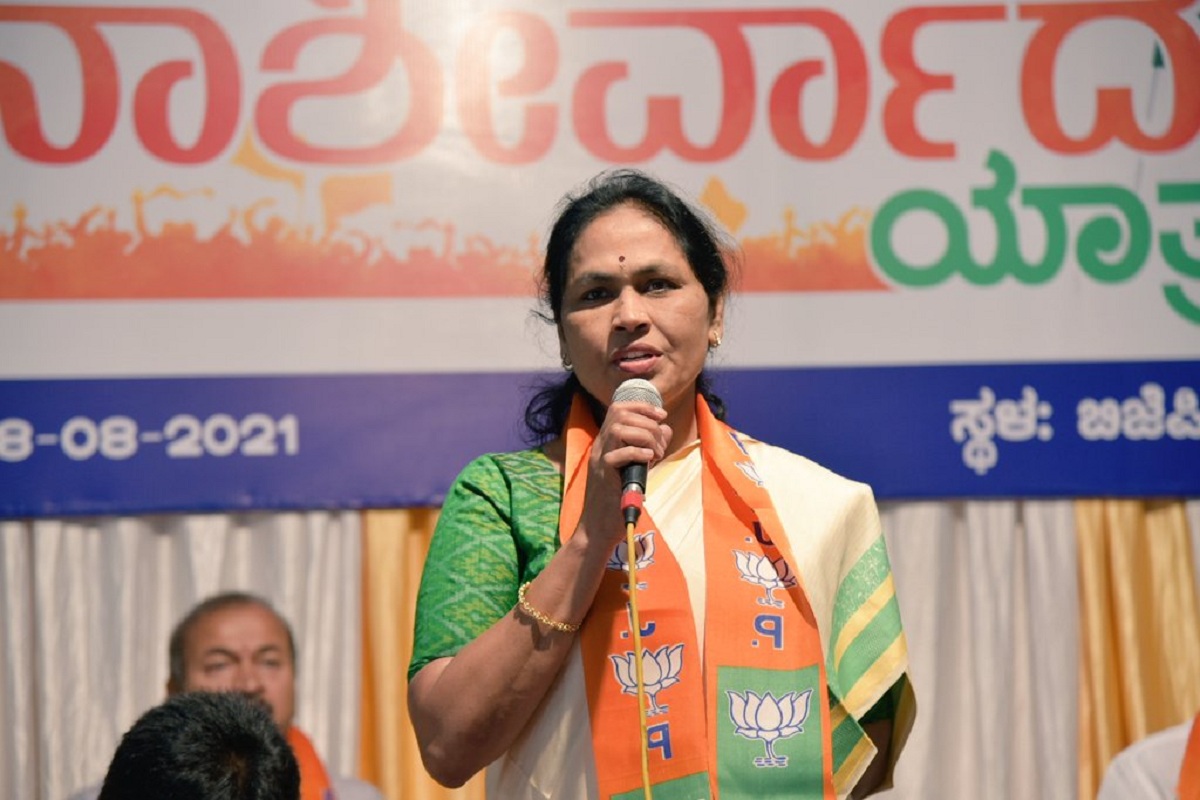Union Minister of State for Labour and Employment Shobha Karandlaje on Friday chaired the second regional meeting on labour reforms and employment in Chandigarh.
The meeting was attended by representatives of Punjab, Himachal Pradesh, Ladakh, Chandigarh and Rajasthan. It was the second in a series of six regional consultations being held by the Ministry of Labour & Employment with States and Union Territories in a spirit of cooperative federalism.
Advertisement
In her opening address, the Minister highlighted the critical need for labour reforms to make India the world’s largest economy by 2047.
She said that the nation should transcend the colonial legacy in the existing labour laws which originated in the pre-independence era. The Government had modernized, simplified and harmonized 29 labour laws into four Labour Codes, she said.
The Minister said Prime Minister Narendra Modi wanted to provide comprehensive social protection coverage from “cradle to grave” for unorganized workers and their dependents at par with organized workers, including through the e-Shram portal.
In this context, the central government is committed to working with States and UTs for strengthening and expanding services and benefits of Employees’ State Insurance Corporation (ESIC) to all districts in the nation, she added.
She said the best practices of the States/UTs Governments in terms of social protection and welfare schemes should be continued and reinforced in alignment with the Codes.
Labour and Employment Secretary Sumita Dawra set the context for the meeting by highlighting the need for greater convergence in the efforts of States/UTs and the Centre for implementing the ongoing labour reforms.
She stressed on the need for the States/UTs to plug the gaps and divergences in their respective draft rules by harmonizing and aligning them with the Central rules for ensuring a seamless roll out of the Labour Codes, as a consistent regulatory framework across States/UTs is vital for the development of industry and welfare of workers.
An enriching exchange of insights and ideas was held with representatives of States/UTs on key issues with a focus on Labour Reforms, eShram, Building and other Construction Workers (BoCW), Employment Generation and Employment Linked Incentives (ELI).
Stressing that employment generation and improving employability are key priorities of the Government of India towards realizing the Prime Minister Narendra Modi’s vision of Viksit Bharat@2047, the Labour Secretary highlighted various initiatives taken by the Government in this direction, including the announcement of Employment Linked Incentive (ELI) schemes in the recent Union Budget 2024-25.
The Labour Secretary highlighted expectations of the Central Government from States/UTs, which included: Employment data collection and adoption of a focused approach for creating quality jobs; Strengthening of a coordinated approach to framing of rules under Labour Codes by States/UTs; Timely and regular submission of employment returns and job-fair details to MoL&E on NCS portal; Time-bound two-way integration with the e-Shram portal; Verification of BoC workers’ data and extension of coverage of Central Government’s Social Protection Schemes to BoC workers through respective BoC workers welfare cess funds.
During the meeting, the representatives of States/UTs shared their best practices, views, suggestions and concerns with respect to the key labour and employment issues, which were duly addressed and noted by the Ministry.
They commended the Central Government for its initiative of reaching out to them and offering them crucial support in advancing the ongoing labour reforms.
The States suggested that access to data of workers registered at e-Shram may be shared with the States/UTs at the district level for more efficient and faster identification of eligible beneficiaries of various welfare schemes.









